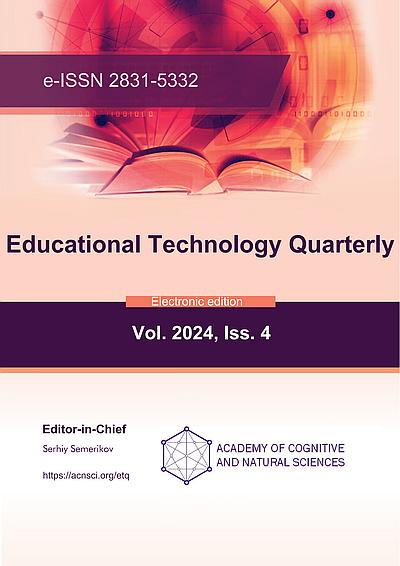Vol. 2024 No. 4 (2024)

In this issue:
- Artificial intelligence in teaching social disciplines: Opportunities and challenges of tools
- Assessment of lecturers' awareness of artificial intelligence for education in a Nigerian university
- Exploring the impact of device ownership, usage patterns, and technology proficiency on mobile learning among higher education students: a multi-faceted study
- The impact of smart classrooms on the core literacy of college English learners and the relationship between core literacy and learning outcomes: Evidence from China
- Tutors' perspectives on the integration of information and communication technology in early-grade teacher colleges in Tanzania
- Advancing autonomy in Tunisian higher education: Exploring the role of technology in empowering learners
Published:
20-12-2024
-
Artificial intelligence in teaching social disciplines: Opportunities and challenges of tools
- Abstract views 801
- PDF views 521
-
Assessment of lecturers' awareness of artificial intelligence for education in a Nigerian university
- Abstract views 888
- PDF views 532
-
Advancing autonomy in Tunisian higher education: Exploring the role of technology in empowering learners
- Abstract views 554
- PDF views 250










